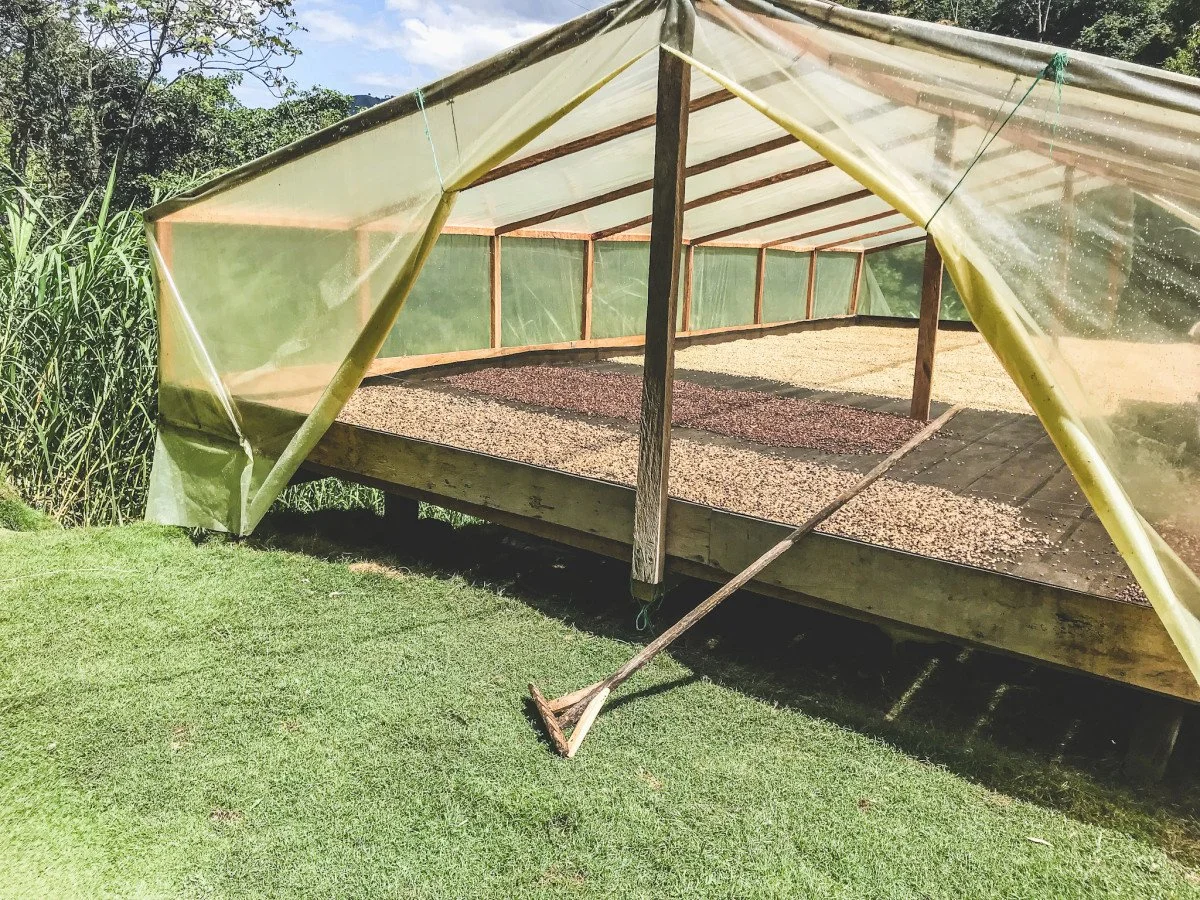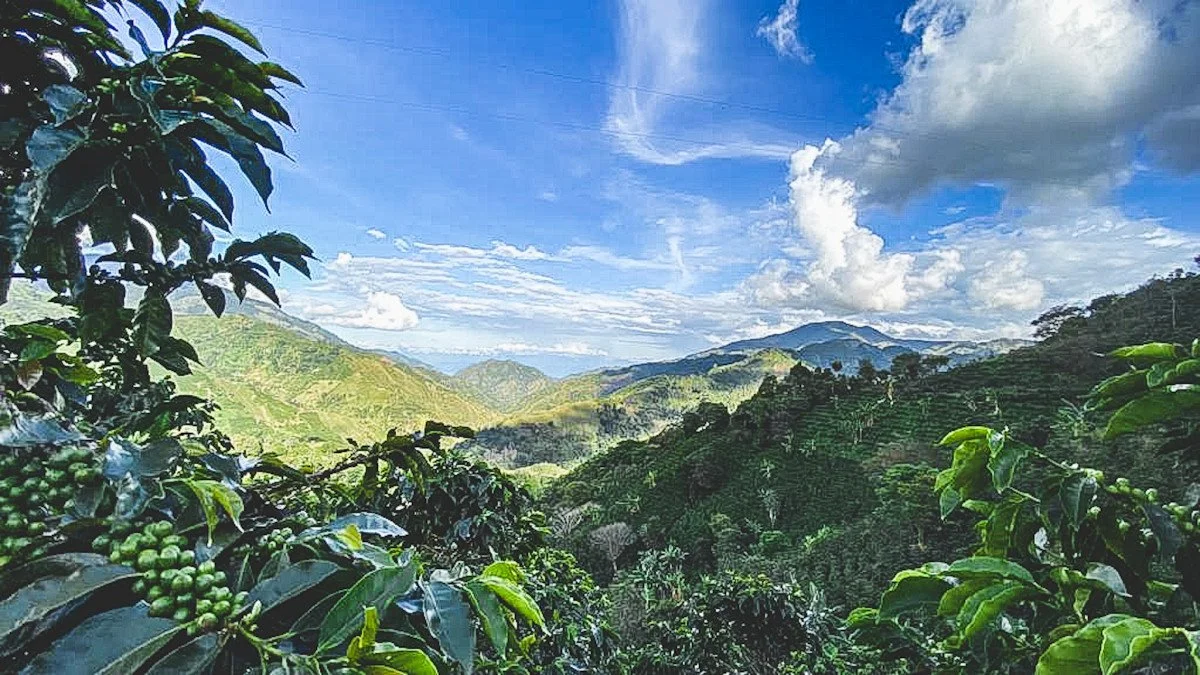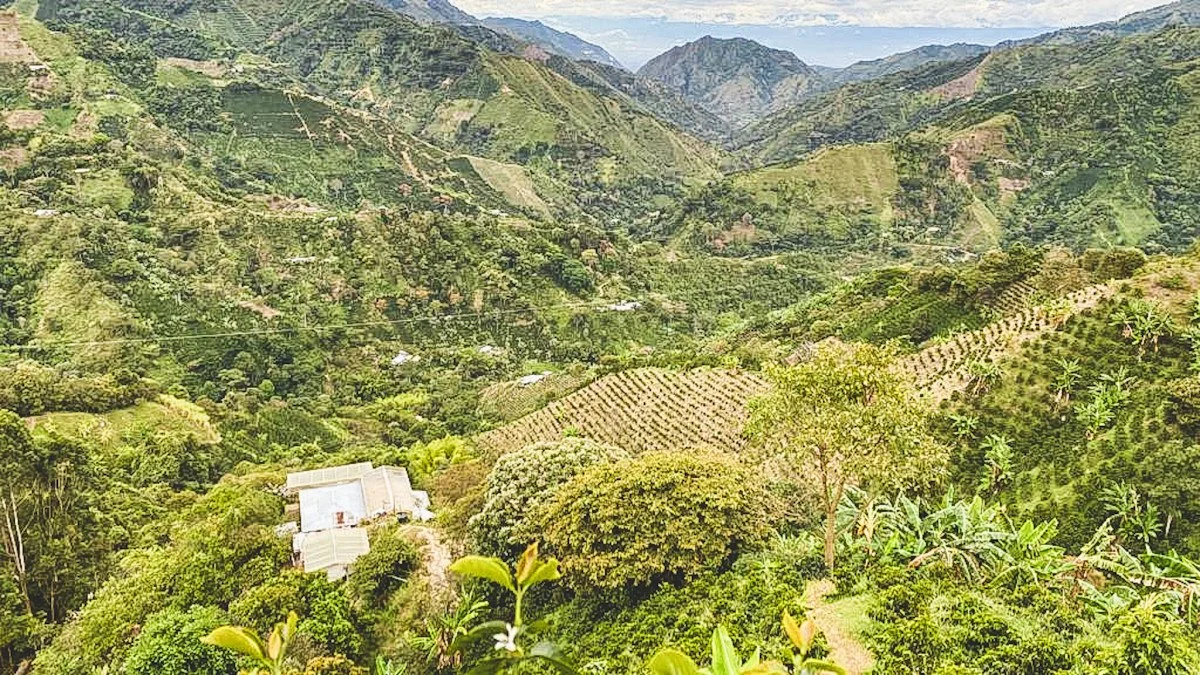Ethiopia Aricha Idido Natural Anaerobic
Light Roast - Limited Release
ETHIOPIA
Say hello to our second ever Ethiopia anaerobic! Only the very ripest cherries are used in this lot, with a Brix reading of 23° or more. That, combined with 96 hours of fermentation in sealed plastic barrels without oxygen, gives this coffee an intense fruitiness, going beyond the fruitiness that a “normal” Ethiopia natural typically exhibits. We taste blackberry compote, black cherry, port wine, grape candy, and bubblegum.
PRODUCER:
800 small-holders
ORIGIN:
Aricha Washing Station, Yirgacheffe
VARIETY:
Heirloom
ELEVATION:
2,000 - 2,100 masl
PROCESS:
Natural Anaerobic
HARVEST:
Spring 2024
TASTING:
Black cherry & bubblegum, warming
IMPORTANT INFO ON BLACK LABEL COFFEE SHIPMENTS:
Black Label coffees only roast and ship on Tuesdays (any order that includes a Black Label coffee will get shipped the following Tuesday).
Why We Love This Coffee
This coffee literally ticks all the boxes. Fantastic growing conditions? Check. Exceptional bean variety? Check. High elevation? Check. Meticulous sorting? Check. Careful processing? Check. The result? Massive fruity flavors!
Approximately 800 small-holder farmers (2-3 hectares in size) at 2,000 - 2,100 meters above sea level in Yirgacheffe bring their cherries to the Aricha Washing Station for this lot. After careful floating and sorting, the ripest cherries (above 23° Brix only) are spread out on raised African beds for 48 hours to ferment and begin to dry - this is exactly how a naturally processed coffee would begin its processing journey too. However, for this lot, after the initial 48 hours, the whole cherries are transferred to sealed plastic barrels for 96 hours of anaerobic fermentation, which really intensifies the fruit character. They are then transferred back to the raised African beds for final drying, which takes 20 - 25 days depending on the weather.
Water Recommendation:
For those of you who want to get every last drop of excellence out of this coffee, our preferred brewing water (at least for cupping), as usual, is full-strength Third Wave Water (130ppm GH, 40ppm KH).
Full-strength Third Wave Water gives a very sweet cup with excellent acidity and origin character. This water gives the most intense fruitness, with the blackberry compote flavor note really jumping out.
Half-strength Third Wave Water (65ppm GH, 20ppm KH), which is nearly identical to Lance Hedrick’s Light & Bright water (60ppm GH, 25ppm KH), gives a much more acid-driven cup profile that somewhat lacks sweetness and complexity, at least in comparison to full-strength TWW. The coffee just feels a little thin to us, and leans a little in the vinegary direction rather than having a pleasant fruitiness.
Rao/Perger water (90ppm GH, 42ppm KH), as usual, gives an excellent flavor profile that was just slightly less sweet compared to full-strength Third Wave Water, but perhaps slightly more nuanced.
Philadelphia water (Baxter water supply) filtered with a three-stage carbon system with a little softening (somewhat similar to what a Brita pitcher would do) also gives an excellent cup profile, very similar to Rao/Perger water, but there is a very slight additional savory note, and a little more generic brown “coffee” flavor.
If this is all very confusing—check out our blog post on water for coffee!
From Our Importer
“This coffee lot is brought to you by SNAP Coffee, The Coffee Quest’s producing partner in Ethiopia. Founded in Addis Ababa by Negusse in 2008, SNAP operates 7 washing stations in key coffee-producing areas like Sidama, Yirgacheffe, and the Guji Zone.
SNAP focuses its operation on three fundamental pillars – Consistency, Education, and Sustainability. It is within their purpose to improve the livelihood of supporting farmers, and last year their team of agronomists trained more than 6,000 farmers in land and nursery management, and climate-smart agriculture through crop diversification and intercropping.
This is the first year that The Coffee Quest has worked with SNAP, and needless to say, they are thrilled to build this relationship in the homeland of Arabica coffee.”













